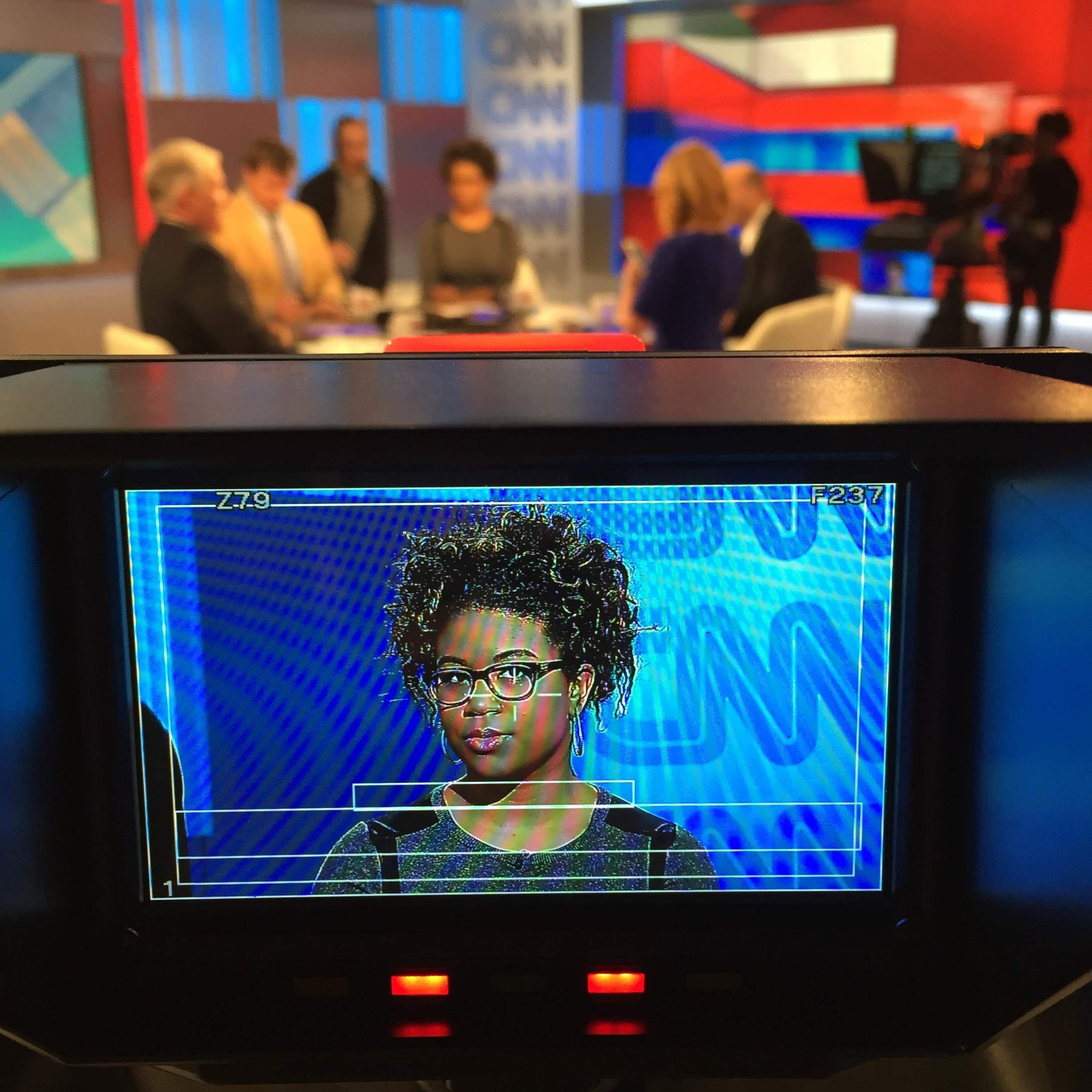
Minutes after appearing on CNN as a political commentator one Sunday in February, I did something I knew I shouldn’t: I picked up my iPhone and checked my email and Twitter accounts. I’ve been reporting on national politics for six years, and in that time, I’ve fallen into a routine: Appear on TV, then brace myself for tweets, emails and Facebook messages about my clothes, my hair, my face, my voice—or any other number of things that have nothing to do with politics.
When I opened my personal email account that day, I was greeted by an email that took it to another level:
I am hardly the first woman to be the subject of noxious online commentary after a public appearances. But it is a sad reality: It’s 2016, a woman can be the frontrunner for a major party’s presidential nomination, and we’re still only worth what we look like.
Three years ago, I made the decision to stop forcing my textured hair into submission and to “go natural,” meaning I no longer chemically process or relax my hair. Since then, I’ve made peace with my natural kinks and curls and regularly choose to wear my shoulder-length cut in a curly style or in long Senegalese twists.
People having opinions—many negative—about my hair and looks is a normal part of my life, particularly as someone with a public-facing job. Strangers grab at my hair. A makeup artist once asked me how long my curly strands would “be that way.” People send cruel tweets when I post clips from interviews. But the above email didn’t feel as innocuous; it was deeply personal.
Not only had this person taken the time to critique my looks to my employer, the news site Mashable, but she’d chosen to criticize an aspect of my appearance that’s deeply tied to my identity as a black woman.
Unlike most commenters though, this critic wasn’t an anonymous person. She’d included both her name and her phone number. It wasn’t just a faceless troll on Twitter attacking me, it was a real person. Most days I ignore these people; this time I decided to confront one.
Read more: iJustine: How to Deal with Mean Online Commenters
“I’m not sure if you have a daughter or a sister or a female cousin,” I wrote back. “But try to imagine them in my position. They’re simply doing what they do every day, and a nameless stranger on the Internet emails them, not about their performance, but because they don’t like the way they look.”
I continued: “It’s easy to whip out a computer or smartphone and fire off a critical email about someone’s physical appearance. After all, I’m a talking head on television. But I’m also someone’s daughter, girlfriend, granddaughter and cousin. I’m someone who put herself through college and spent the last decade working to build a career as a political journalist. I’m someone who wants to be judged for my intellect, not my appearance or my choice of hairstyle.”
Several hours later, I got an email back. My critic admitted that she’d been wrong to email my company about my hair. “I apologize for my stupidity there,” she wrote. “But I want you to know, I did listen to you—and found you elegant and classy. I think I was looking for a perfect hairstyle to go with the solid impression I got of you, not one that distracts from your words.”
Read more: Oh Joy! Founder Joy Cho: How to Be You
She went on for a while, saying she hoped to see and hear more from me online. I guess she couldn’t sign off without one last parting shot.
“I am very proud of you and such others who’ve applied themselves so well,” she wrote. “But I truly hate seeing those hairstyles.”
Delete.
For as far as we’ve come when it comes to women in public life, it seems like we still have a lot of work to do.
Juana Summers is the political editor at Mashable.
More Must-Reads from TIME
- Donald Trump Is TIME's 2024 Person of the Year
- Why We Chose Trump as Person of the Year
- Is Intermittent Fasting Good or Bad for You?
- The 100 Must-Read Books of 2024
- The 20 Best Christmas TV Episodes
- Column: If Optimism Feels Ridiculous Now, Try Hope
- The Future of Climate Action Is Trade Policy
- Merle Bombardieri Is Helping People Make the Baby Decision
Contact us at letters@time.com